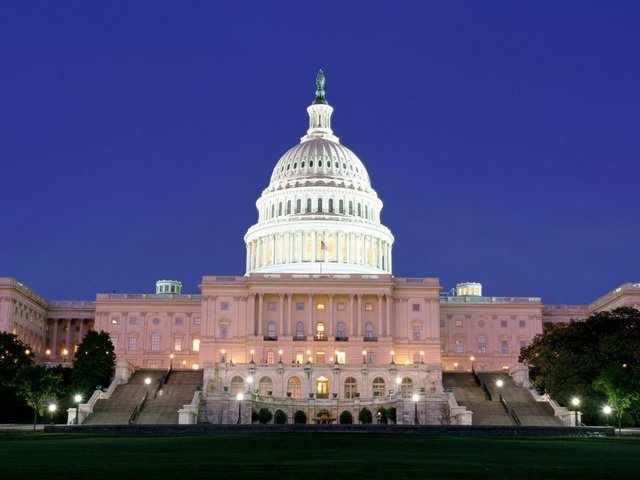Top 5 countries with the most stringent regulation of Bitcoin

As soon as the Bitcoin ceases to be an attribute of a narrow circle of geeks and is becoming more popular, so does the level of its regulation from government authorities.
Iceland

Iceland was the only European state that prohibits certain transactions with Bitcoin. According to the central bank of the country, the citizens of "prohibited transaction for the exchange of electronic Bitcoin currency for foreign currency, in accordance with the Foreign Exchange Law of Iceland." This measure aims to avoid the outflow of Iceland's local currency. However, this did not prevent the appearance of the island's own cryptocurrency - avrorakoina, the creator of which was a man with the pseudonym Baldur Friggyar Odinsson borrowed from Norse mythology. In addition, Iceland is a major center of Bitcoin Mining.
USA

US Bitcoin considered a friendly state, while the authorities seek to control the operation in Bitcoin transactions on a par with traditional currencies. In March 2013 the IRS has recognized the virtual currency subject to taxation, and also decided that the professional miners have to pay tax, as well as other individual entrepreneurs.
In September last year, according to US Commodity Futures Trading Futures Commission (CFTC) has identified Bitcoin status as a commodity that is regulated within the framework of existing legislation. Controller outlined its position on Bitcoin, accusing Coinflip Bitcoin-operator in the illicit trade and transactions with swaps. The move was seen as a part of the community legalization of digital currency and embedding it in the existing legislative framework. However, licensing issues Bitcoin companies are at the discretion of the states.
June 24 Register of the State of New York officially released the final "Decision regarding the operation of the business in the field of virtual currency." This meant that every company that deals with Bitcoin, was to obtain a license that would confirm compliance with the terms published by the New York Department of Financial Services.
In accordance with this license (dubbed BitLicense), Bitcoin companies had to comply with strict rules that help ensure customer reliability and prevent money laundering. Businesses that do not have litsunzii prohibiting further activity in New York State.
Bitcoin community regarded this as an invasion of the nascent free market of digital currency. Immediately following the publication of the decision, New York left some companies, including ShapeShift, Kraken and Bitfinex, LocalBitcoins and BitQuick. Today could get BitLicense only two companies - Circle and Ripple. Two kriptovalyutnyh startup - itBit and Gemini, done without a special license, obtained permission for banking activities.
Japan

In March 2016 the Japanese virtual currency gained status close to traditional currencies. In addition, it was passed a package of bills aimed at combating money laundering and the protection of clients, Bitcoin exchanges.
Under the new laws, Bitcoin-exchange fall under the jurisdiction of the Japanese department of financial services. They must register with the department, while having a minimum capital of 10 million yen, to submit annual financial reports and perform an audit on a regular basis. It is expected that this will help to combat money laundering and create an impenetrable barrier for businesses unable to ensure the safety of the assets of its clients. According to the prosecutor Motokazu Endo,
"Courses cryptocurrency fluctuate dramatically and are associated with very high risk. Many exchanges weak financial basis, and if they go bankrupt, it will be difficult to protect creditors' assets. "
At the moment, the Japanese who want to buy Bitcoins must pay vosmiprotsentny consumption tax. He is charged each time a Japanese citizen buying Bitcoins for Japanese yen using the Bitcoin market, Bitcoin as these fall within the definition of "imported goods". However, Bitcoin can be purchased on foreign exchanges - and bring to Japan "contraband."
Australia

The current version of the Australian taxation rules considering Bitcoin as "intangible assets", unlike money, subject to taxation on goods and services (GST). Fees are paid well and businesses that accept payment in Bitcoins. Meanwhile, in March, it was announced that the country's authorities intend to release cryptocurrency of double taxation and to develop a legal framework for this year's end.
A year ago, the Senate Economic Affairs Committee on the results of the study recommended that the digital currency to equate them in status to the usual money. In October 2015, the Australian Government has assured in his report, that will apply to new payment systems such as Bitcoin, "moderate approach".
However, recently the rhetoric of government officials was replaced by a more rigid: they have attended to the role of Bitcoins as a potential means of financing terrorism. As a result, the digital currency may be extended action of the relevant legislation. At the same time since the 2014 Australian Bitcoin companies are required to keep records of data about their customers, and to inform the police of suspicious transactions.
As for the Australian banks, in general, they belong to the Bitcoin industry rather hostile. In September last year a group of the largest banks in the country, including Westpac Banking Corporation and the CBA, without explanation, to close the account for at least 17 Bitcoin companies. Commission on Competition and Consumer Protection had time to understand how such a move is the letter of the law.
China

In China, the government's attitude to the Bitcoin twofold: the state structures do not recognize his tender, the banks did not take, and financial services companies legally prohibited from owning assets kriptovalyutnymi.
These restrictions do not apply to individuals. The Chinese can buy and sell Bitcoin each other and foreigners. In the stores, taking digital currency, you can make purchases with it. In July 2016, China began to develop a law that, how to calculate the local community, would give Bitcoin status "object of civil rights", equating it to the personal belongings, property, bank deposits and other objects of private property. Subsequently, however, this interpretation has been challenged.
Out of the competition in this ranking includes the country decided to "problem" Bitcoin radical way:
Bolivia, Ecuador and Bangladesh totally banned in Bitcoin transactions on its territory. However, Ecuador intends to introduce its own digital currency; in July 2014 the initiative was supported by the country's parliament.